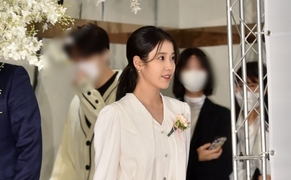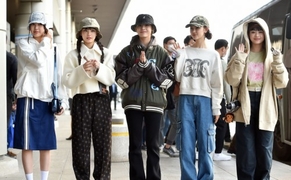Tadayuki Fujino, Executive Director of NNTT: ‘Ever More Enjoyable', 'Ever More Creative', 'Ever More Global’
The New National Theatre Tokyo (NNTT) is the first national theater of Japan for contemporary performing arts, located west of Shinjuku, Tokyo. Since opening as a world-class, state-of-the-art theater in 1997, a total of over 750 productions have been performed. NNTT's performance season is from October to July every year, and it presents about 300 performances per season, combining opera, ballet and theater.
The theater celebrated its 25th anniversary in 2022. Therefore, the '2022-23' season was performed for a year with special works commemorating the 25th anniversary of the opening. In addition, there was a change in management last year, with a new executive director taking office. Meeting with Tadayuki Fujino, Executive Director of NNTT, to listen about NNTT's impression, ambition, and new plans for the 25th anniversary.
 |
| Tadayuki Fujino, Executive Director of New National Theatre Tokyo/ Source: New National Theatre Tokyo |
◇ Where does NNTT stand in the Japanese performing arts scene?
Opened in 1997 as Japan's only national theater for contempory performing arts such as opera, ballet, dance and theater. With the birth of NNTT, the National Theater, which plans, produces, and performs operas and ballets throughout the year, like Western opera houses, has came to appear for the first time. It also has a training institute that trains opera singers, ballet dancers, and actors, making it an important base for the Japanese performing arts community in terms of nurturing talent. To mark the 25th anniversary of its opening, three phrases were selected as slogans. They are "Ever More Enjoyable," "Ever More Creative," and "Ever More Global." This is the way forward for the NNTT.
◇ How do you feel about the first anniversary of your inauguration as NNTT's executive director?
NNTT has three divisions: Opera, Dance and Theater. As the genres are different in these three fields, the personalities of the artists are different and the characteristics of the departments are also different. Even the audience is different. While trying to know its characteristics, I also grasped the know-how of NNTT for 25 years. At the same time, problems caused by COVID-19 had to be addressed. Everyone here is passionate and full of fighting spirit. I am confident that it will grow even more in the future.
◇NNTT celebrated its 25th anniversary last year. For one year, productions commemorating the 25th anniversary were presented. What works have been performed so far?
In the opera, 'Giulio Cesare', 'Boris Godunov', and 'Rigoletto' were newly produced. 'Boris Godunov' was conducted by Kazushi Ono, the artistic director of the opera department, and he put his heart and soul into it. The 'Giselle' in ballet and the Japanese premiere of 'Leopoldstadt', the latest work by British playwright Sir Tom Stoppard, directed by artistic director Ogawa is particularly noteworthy. Among them, the opera "Boris Godunov" is being streamed online until September. It's free, so I hope you can watch a lot in Korea.
◇It is creating and performing high-quality Japanese operas in a series with the goal of "Japanese Opera to be presented on the world stage." What does it mean for Japanese opera to be performed universally on the world stage.
Artistic director Kazushi Ono says it should not end with creating or producing new operas in Japan. It is believed that works made in Japan should move to the world. If such things become active, not only will the awareness of our theater increase, but it will also be used as a high-quality communication tool to promote Japanese culture to the world. In that sense, we premiered two Japanese operas, 'Asters' in February 2019 and 'A Dream of Armageddon' in November 2020. Due to COVID-19, it has been suspended for a while, but we are trying to resume as soon as possible.
◇Japan is one of the fastest developers of Western music in Asia. Maybe that's why the fixed fan base is solid. What is the New National Theater Tokyo's unique strategy for continuously retaining audiences?
Japanese opera fans are quite diverse in taste and belong to various classes. So, we try to organize our theater's seasonal lineup with a balanced and various repertoire. New productions, popular works, and rare works that are not performed well are performed evenly, and in the case of new or rare productions, many side events such as talk events and related exhibitions are held to help understand the work.
◇With the advent of various media platforms, there are concerns that young people are not coming to classical music venues.
In order for the younger generation to actually come to the theater, it is important to create the first opportunity. For this reason, NNTT holds opera appreciation classes for high school students every year in Tokyo and Kyoto. Approximately 12,000 high school students come to see NNTT's operas each year. In addition, the NNTT Choir visits schools around Japan every year to give opera concerts. It is very important not only to have people come to the theater, but also outreach activities that we visit ourselves in person. In order to increase the number of young opera fans, there is also a system that provides relatively cheap tickets to audiences under the age of 39 and under the age of 25.
According to the data, most of the people who actually come to opera performances are in their 50s and 60s. Such statistics have been continuously maintained since 25 years ago. This means that even after 25 years, the main audience will be still fixed in their 50s and 60s. It is predicted that the generation who experienced opera or the arts in their youth are looking for theater after they have time or financial leeway. Because of this, it is difficult for young people to actively come to the theater right away, but there is a circulation structure that makes them visit the theater again later if they are exposed to art occasionally and make an opportunity to appreciate it.
 |
| A scene from ‘La Bohème' by New National Theater Tokyo/ Source: ⓒ Masahiko Terashi, New National Theater Tokyo |
◇I am curious about the production of the new season.
In the 2023-24 season, the opera section will stage nine works. The first work of the season is a new production, Puccini's 'Suor Angelica' and Ravel's ' L’enfant et les sortilèges' will be performed as a double bill. It seems to be a unique combination with the theme of mother's love. In November, Verdi's 'Simon Boccanegra' as the second new production will be performed under the conduction of Artistic Director Kazushi Ono and directed by Pierre Audi, General Director of the Aix-en-Provence Music Festival. It is expected to become an opera that the world is paying attention to.
◇Do you have any plans to cooperate with Korean performing arts groups?
Since preparations for the performance begin at least three years in advance, so it will take a certain amount of time to realize the idea, but it is important to cooperate with what is possible first. For example, in the case of opera, I think various human exchanges and online screenings of works from both countries could be considered. Two years later, 2025, marks the 60th anniversary of the normalization of diplomatic relations between Korea and Japan. I look forward to many exchanges and cooperation in the future. In addition, I hope that international joint cultural and artistic policies will emerge among East Asian countries, production will be shared among neighboring countries like Europe, and artists such as singers can come and go without any burdens.
/ Sooyeoun Sohn (Opera critic/ Professor at Dankook University)
Translation: Daegon Wie
#New National Theater Tokyo #Tadayuki Fujino
Copyright by Asiatoday
Most Read
-
1
-
2
-
3
-
4
-
5
-
6
-
7





















